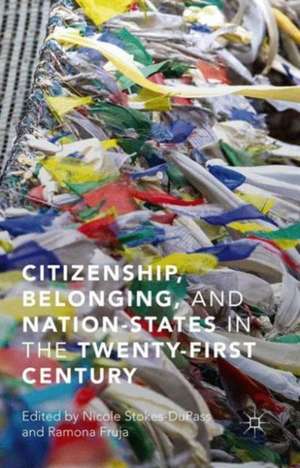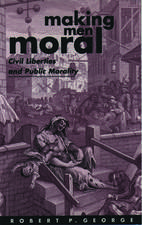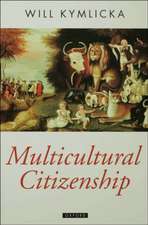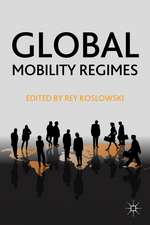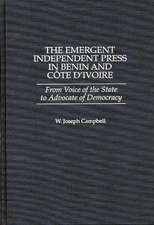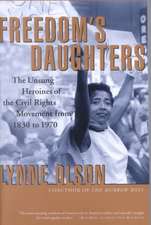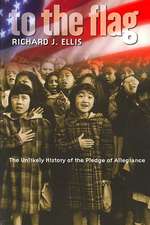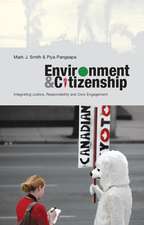Citizenship, Belonging, and Nation-States in the Twenty-First Century
Autor Nicole Stokes-DuPass, Ramona Frujaen Limba Engleză Hardback – 20 ian 2016
Preț: 614.51 lei
Preț vechi: 722.96 lei
-15% Nou
Puncte Express: 922
Preț estimativ în valută:
117.58€ • 122.77$ • 97.32£
117.58€ • 122.77$ • 97.32£
Carte tipărită la comandă
Livrare economică 05-19 aprilie
Preluare comenzi: 021 569.72.76
Specificații
ISBN-13: 9781137536037
ISBN-10: 1137536039
Pagini: 304
Ilustrații: XXVII, 257 p.
Dimensiuni: 140 x 216 x 18 mm
Greutate: 0.48 kg
Ediția:1st ed. 2016
Editura: Palgrave Macmillan US
Colecția Palgrave Macmillan
Locul publicării:New York, United States
ISBN-10: 1137536039
Pagini: 304
Ilustrații: XXVII, 257 p.
Dimensiuni: 140 x 216 x 18 mm
Greutate: 0.48 kg
Ediția:1st ed. 2016
Editura: Palgrave Macmillan US
Colecția Palgrave Macmillan
Locul publicării:New York, United States
Cuprins
1. Constructing the Boundaries of US Citizenship in the Era of Enforcement and Securitization; Sofya Aptekar
2. Enduring Practices of Scrutiny: State-Centered Perspectives on Naturalization and Integration Requirements in Germany and Denmark; Ramona Fruja
3. Politics of Belonging: From National to Personal and the Political Framing of "Dutch" Identity and Ethnic Minority Citizens; Marieke Slootman and Jan Willem Duyvendak
4. Conceiving Citizenship and Statelessness in the Middle East and Sweden: The Experiences of Kurdish Migrants in Sweden; Barzoo Eliassi
5. Change, Challenge and Continuity in Qatari Development: Identity and Citizenship in the Fulcrum of Hyper-Globalization; David Mednicoff
6. Regimes of Political Belonging: Turkey and Egypt in Comparative Perspective; Sinem Adar
7. Recognition as a Relationship of Power and Struggle: The Governing of Kurds and Alevis in Turkey; Ozlem Goner
8. Situating the Syrian State: Nation and Education (1914-2014); Idir Ouahes
9. Permanently Waiting: The Kenyan State and the Refugee Protection Regime; Erika L. Iverson
2. Enduring Practices of Scrutiny: State-Centered Perspectives on Naturalization and Integration Requirements in Germany and Denmark; Ramona Fruja
3. Politics of Belonging: From National to Personal and the Political Framing of "Dutch" Identity and Ethnic Minority Citizens; Marieke Slootman and Jan Willem Duyvendak
4. Conceiving Citizenship and Statelessness in the Middle East and Sweden: The Experiences of Kurdish Migrants in Sweden; Barzoo Eliassi
5. Change, Challenge and Continuity in Qatari Development: Identity and Citizenship in the Fulcrum of Hyper-Globalization; David Mednicoff
6. Regimes of Political Belonging: Turkey and Egypt in Comparative Perspective; Sinem Adar
7. Recognition as a Relationship of Power and Struggle: The Governing of Kurds and Alevis in Turkey; Ozlem Goner
8. Situating the Syrian State: Nation and Education (1914-2014); Idir Ouahes
9. Permanently Waiting: The Kenyan State and the Refugee Protection Regime; Erika L. Iverson
Recenzii
“The volume adds to the literature by using novel approaches to paint a picture of modern states engaged in citizen-making in ways and places not often considered in the usual immigration/naturalization examinations. … Summing Up: Recommended. Upper-division undergraduates through faculty.” (R. A. Harper, Choice, Vol. 54 (11), July, 2017)
Notă biografică
Nicole Stokes-DuPass is a political sociologist whose research focuses on the state, international migration, citizenship, social integration, and Scandinavian and European studies.
Ramona Fruja is a sociologist of education who examines the intersections among immigration, learning contexts and identity, focusing on immigrants' experiences with education and citizenship in their multiple forms.
Ramona Fruja is a sociologist of education who examines the intersections among immigration, learning contexts and identity, focusing on immigrants' experiences with education and citizenship in their multiple forms.
Textul de pe ultima copertă
Citizenship, Belonging, and Nation-States in the Twenty-First Century contributes to the scholarship on citizenship and integration by examining belonging in an array of national settings and by demonstrating how nation-states continue to matter in citizenship analysis. Citizenship policies are positioned as state mechanisms that actively shape the integration outcomes and experiences of belonging for all who reside within the nation-state. This edited volume contributes an alternative to the promotion of post-national models of membership and emphasizes that the most fundamental facet of citizenship—a status of recognition in relationship to a nation-state—need not be left in the 'relic galleries' of an allegedly outdated political past. This collection offers a timely contribution, both theoretical and empirical, to understanding citizenship, nationalism, and belonging in contexts that feature not only rapid change but also levels of entrenchment in ideological and historical legacies.
